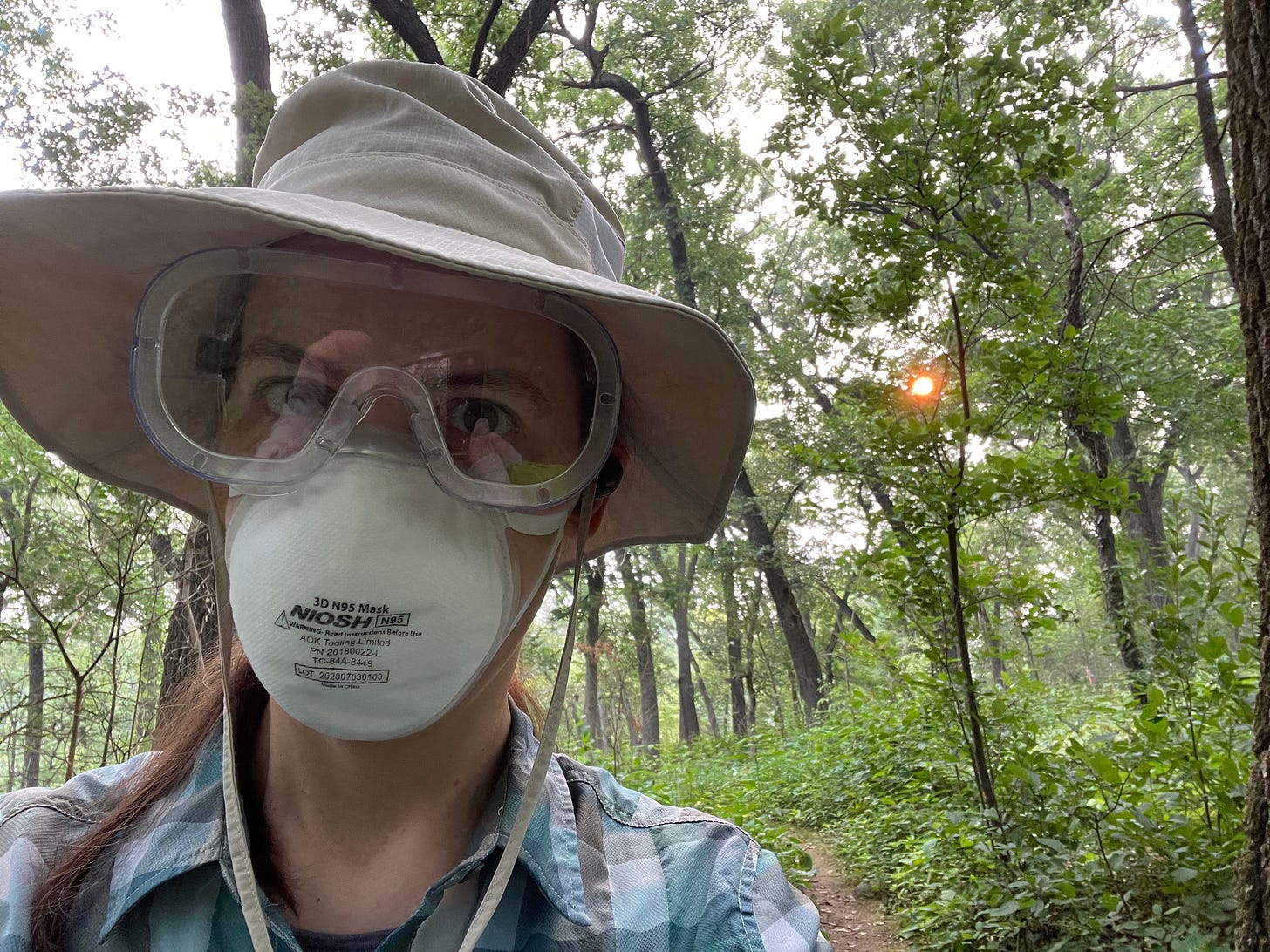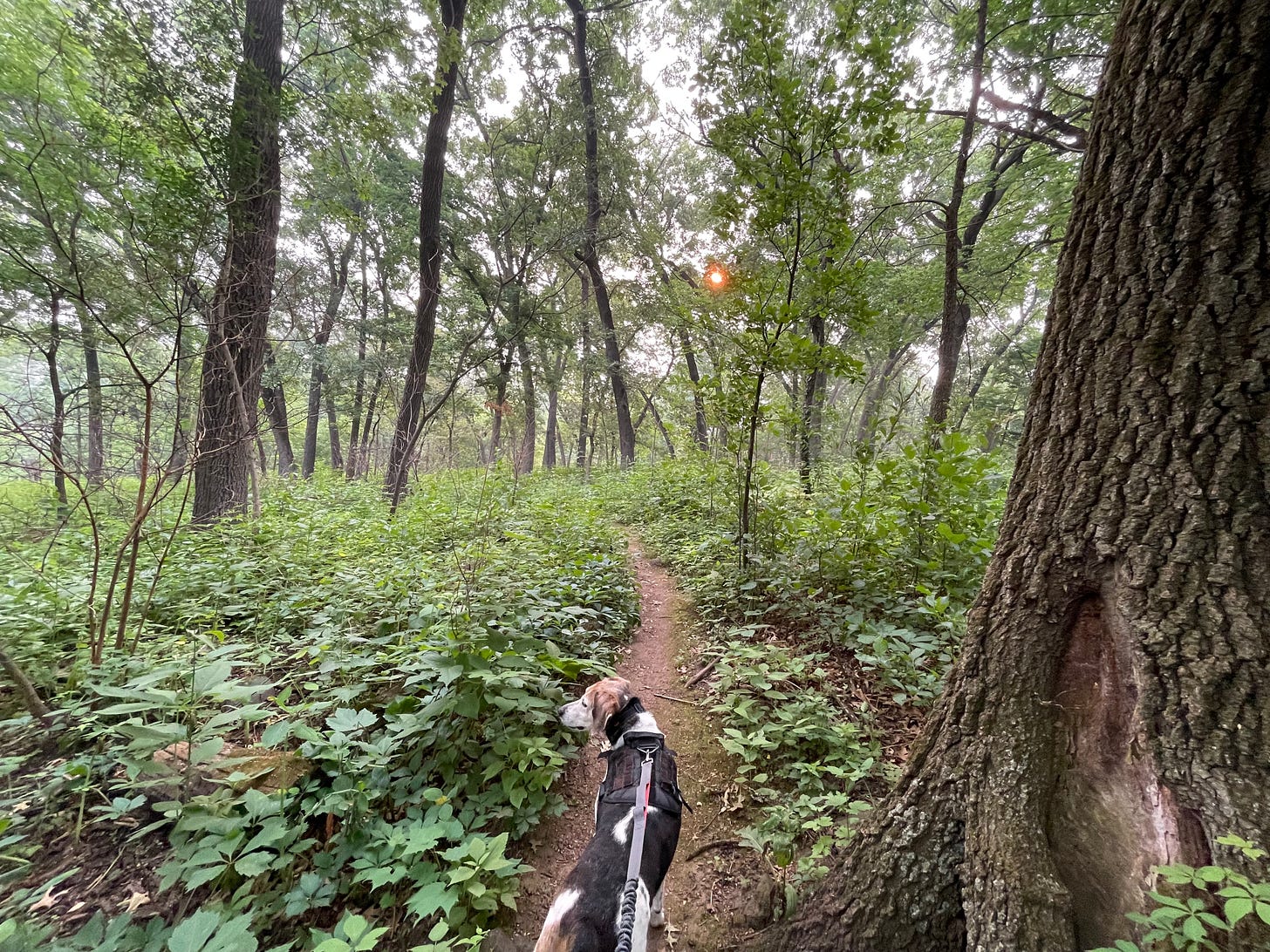Respirators, Wildfire Smoke, and Environmental Impacts on our Health
Amid very unhealthy air quality in Wisconsin, N95 respirators protect against particulate pollution, letter campaign to reduce air pollution from cars due July 5
Yesterday, the sun shone red-orange through the haze. I normally wear a respirator for my dog walks as a COVID precaution and to reduce seasonal allergies, but these days I’m wearing it for another reason—the poor air quality.

Today, the situation is even worse, with air quality in the “very unhealthy” range - not just “unhealthy for sensitive groups” that we have been seeing lately.

Here in Wisconsin, we are used to fresh air and enjoying the outdoors in the summertime. Most of us haven’t had a lot of experience with smog. You can check local current air quality at AirNow.gov, as well as predictions for the next couple of days. So far it looks like the situation will be improving tomorrow, although ozone levels may continue to be moderate.
N95 respirators are very effective in reducing exposure to particulate matter pollutants like PM2.5.1 However, just as with COVID precautions, none of our precautions are perfect, so reducing exposure is important as well. This means reducing time spent outdoors. Today I skipped my dog walk. Notably, we should reduce exposure for our pets too by keeping them indoors as much as possible. Not to worry, the doggo got some extra treats to make up for the missed walk! 🐶
Regular N95 respirators only help with particulate matter—they are not effective for reducing ozone, which is a gas, unless they are specifically rated for ozone.

Poor air quality including both particulates and ozone can harm our health in both the short- and long-term. Exercising outdoors in polluted air is particularly dangerous—even if you do not experience immediate symptoms such as difficulty breathing, the increased risk of cardiovascular disease may outweigh the benefits of exercise.2
Although the smoke from the current Canadian wildfires will eventually pass, I can’t help but feel that our current situation is a preview of things to come, if we don’t act to reduce air pollution. You can support legislation to help reduce pollution from power plants and cars by submitting letters via Healthy Climate Wisconsin’s forms. The campaign for car air pollution safeguards ends July 5.
Stay safe and mask up, both indoors and out! 😷
Kodros JK, O’Dell K, Samet JM, L’Orange C, Pierce JR, Volckens J. Quantifying the Health Benefits of Face Masks and Respirators to Mitigate Exposure to Severe Air Pollution. Geohealth. 2021;5(9):e2021GH000482. doi:10.1029/2021GH000482 URL: https://www.ncbi.nlm.nih.gov/pmc/articles/PMC8438762/
Kim SR, Choi S, Kim K, et al. Association of the combined effects of air pollution and changes in physical activity with cardiovascular disease in young adults. European Heart Journal. 2021;42(25):2487-2497. doi:10.1093/eurheartj/ehab139




https://www.channel3000.com/news/it-s-definitely-a-concern-smoky-air-unhealthy-for-pets-as-well-as-people/article_c36006ca-162d-11ee-adea-b7344b5ec1ea.html Air quality impacts on pets - keep them indoors as much as possible. Hopefully the air quality in Wisconsin will improve today, but it's still pretty bad this morning.
Free mask distribution in the area: https://www.facebook.com/photo?fbid=644304634390982&set=a.302820938539355 https://www.google.com/maps/d/embed?mid=1mhavAVn8jS-pd0_niaTgxYRIeb7Ic3U&ehbc=2E312F